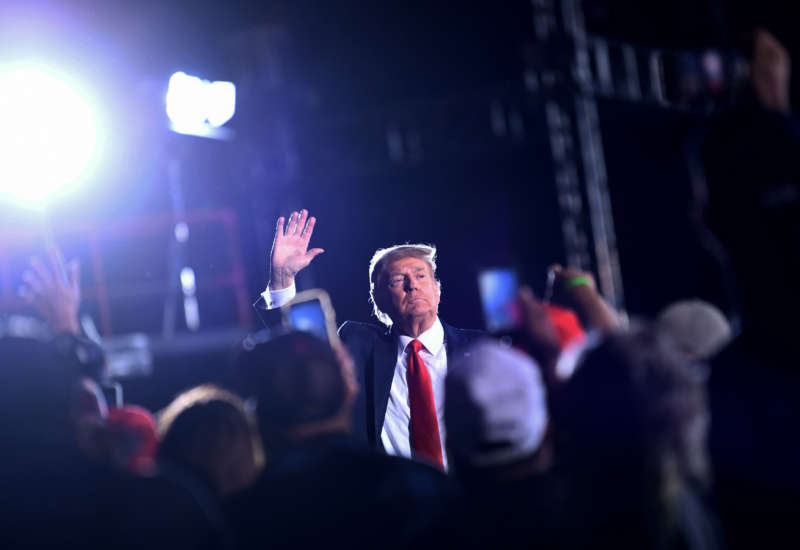A court in Fulton County, Georgia, has agreed to a request from county District Attorney Fani Willis to convene a special grand jury to assist in the investigation into Donald Trump’s attempt to persuade state officials to overturn the 2020 election results.
Willis is investigating whether a phone call from Trump to state officials in late December 2020 violated laws prohibiting the solicitation, requesting or commanding of another person to engage in election fraud. A person who is convicted of such a charge could face up to three years in prison.
The special grand jury, which was approved on Monday by the Fulton County Superior Court, won’t have the authority to issue an indictment against Trump, but if it believes one is proper, it can make the recommendation to Willis, who can then decide to pursue a criminal case. The special grand jury will be assembled on May 2, and Willis has said that she will make a decision on criminal charges sometime in the first half of this year.
In her formal request for the special grand jury last week, Willis said that her office has “received information indicating a reasonable probability that the State of Georgia’s administration of elections in 2020, including the State’s election of President of the United States, was subject to possible criminal disruptions.”
Willis also noted in her request that a “significant number of witnesses and prospective witnesses have refused to cooperate with the investigation absent a subpoena requiring their testimony.” Georgia Secretary of State Brad Raffensperger, who was on the call with Trump over a year ago when the former president pressured him to “find” votes to overturn Biden’s win in the state, has been reluctant to testify without a subpoena order, she said.
The court’s order for creating the special grand jury authorizes it to “investigate any and all facts and circumstances relating directly or indirectly to alleged violations of the laws of the State of Georgia,” Chief Judge Christopher Brasher wrote.
Last week, Trump defended his phone call with Raffensperger, saying the conversation “was perfect.”
“I didn’t say anything wrong in the call,” Trump said.
But Trump’s conversation with the Georgia secretary of state likely violates the state’s law against coercing election officials to engage in election fraud. In an audio recording of the conversation, Trump lied about the election’s integrity numerous times in order to convince Raffensperger to “find” him 11,780 votes — the exact number that he needed to win against Joe Biden in Georgia.
Trump also made a number of vague threats toward Raffensperger and his attorney, claiming that they could be held criminally liable if they didn’t comply with his demands.


